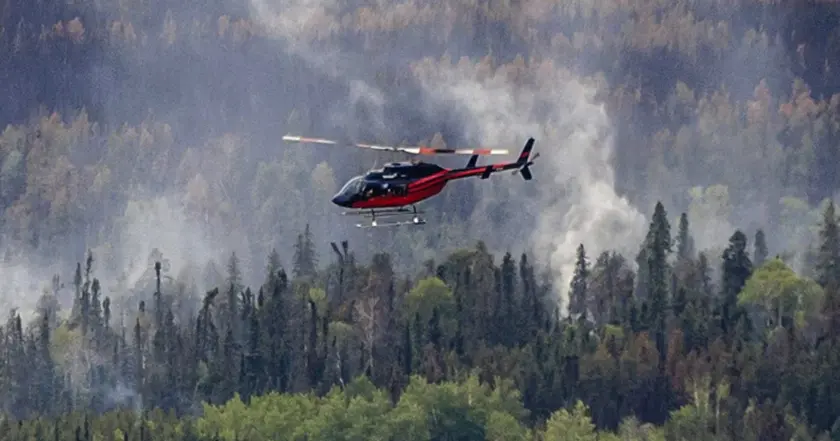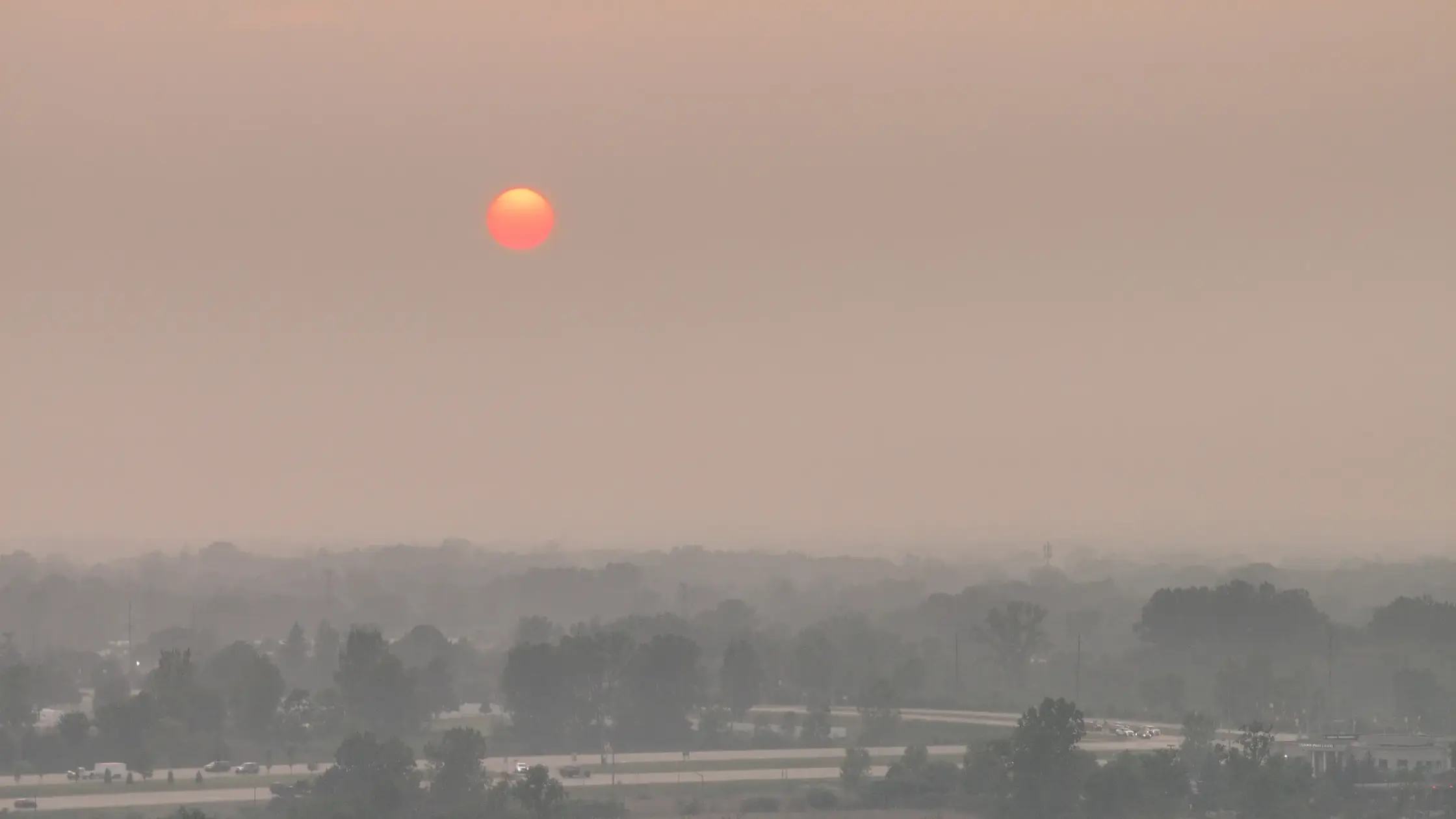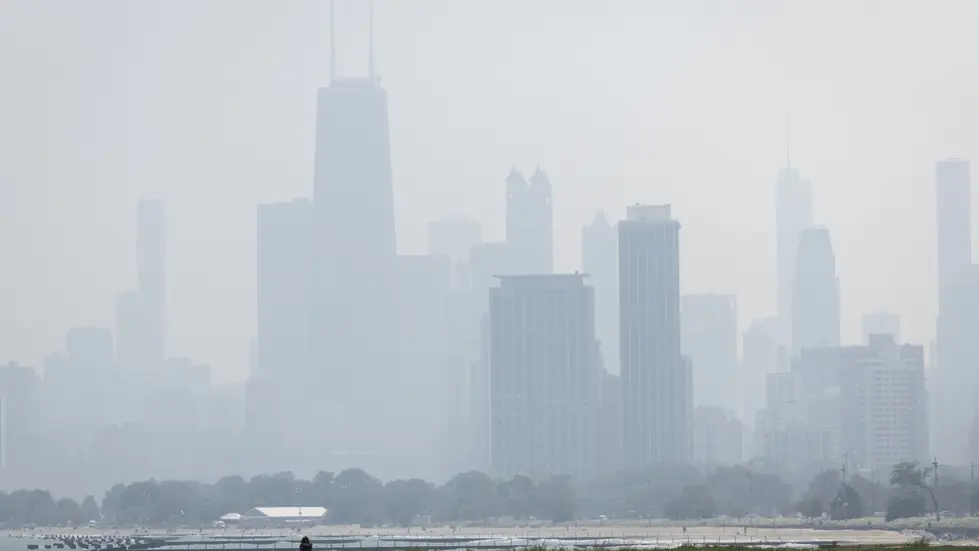T4K3.news
Canadian wildfires create health risks across the U.S.
Wildfire smoke continues to impact air quality, raising health concerns in several states.

Smoke from Canadian wildfires poses serious health risks across the U.S.
Health risks from Canadian wildfire smoke continue to rise
Wildfires in Canada have resulted in significant air quality issues in the United States, particularly impacting areas in the Northeast and Upper Midwest. With nearly 4,000 fires this year, air quality alerts have been issued, including a statewide advisory in Michigan. Experts warn that exposure to wildfire smoke can equate to smoking several cigarettes daily. With the air quality index in cities like Detroit reaching alarming levels, emergency room visits for respiratory conditions have surged. Wildfire smoke not only exacerbates existing health issues but is also linked to long-term risks, such as a greater likelihood of developing dementia. Climate change is worsening the wildfire situation, leading to greater intensity and frequency of these events, meaning communities must adapt to a new normal of hazardous air quality.
Key Takeaways
"Exposure to fine particulate matter, the air pollution, is similar to smoking a quarter to half a pack a day."
This highlights how severe the health impacts of wildfire smoke can be.
"Wildfire smoke is just a toxic soup."
This emphasizes the danger of various pollutants in wildfire smoke.
"The dose makes the poison."
This reflects the need to limit exposure to hazardous smoke whenever possible.
The rising prevalence of wildfires highlights a troubling trend in public health and environmental policy. As scientists and health professionals draw parallels between wildfire smoke and cigarette smoke, the urgency of addressing climate change becomes clearer. The frequency and intensity of wildfires are likely to increase due to our changing climate, posing a growing threat to respiratory health across diverse populations. This situation compels not only immediate action to mitigate harm but also long-term strategies to combat climate change and improve air quality.
Highlights
- Wildfire smoke equals smoking half a pack a day.
- No level of exposure to wildfire smoke is completely safe.
- Climate change is worsening the wildfire situation.
- Children breathe in more air relative to their size.
Health risks from wildfire smoke pose significant threats
Wildfire smoke exposure is linked to serious respiratory and long-term health issues, increasing emergency room visits during fire events. Vulnerable groups, including children and the elderly, are particularly at risk.
As conditions worsen, communities must strategize on how best to protect public health.
Enjoyed this? Let your friends know!
Related News

Wildfire smoke forecasting tools reviewed

Millions face air quality alerts due to wildfire smoke

Wildfire smoke linked to dementia and asthma in Michigan

Smoke from Canada wildfires delays flights at Logan Airport

Canadian wildfires lead to alerts in Midwest and Northeast

Canada wildfires affect U.S. air quality

Air quality alert issued for New York due to wildfires

Massive pool recall announced by safety authorities
